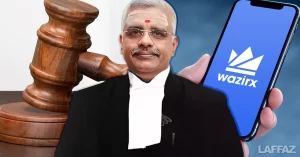Tensions in the WordPress community escalated on Wednesday as WordPress.org, the open-source web hosting software, imposed a ban on hosting provider WP Engine. This move restricted WP Engine’s access to WordPress’s valuable resources.
In a WordPress blog, Matt Mullenweg, co-creator of WordPress and CEO of the parent company Automattic, explained that the ban was effective pending the resolution of ongoing legal claims. As a result, WP Engine was unable to utilize WordPress’s extensive library of themes and plugins, essential tools for building and customizing websites.
On Friday, 27 September, WordPress announced that the company has lifted the temporary ban from WP Engine until Tuesday, October 1 in response to the complaints raised by WP Engine users.
Speaking of which, Mullenweg blamed WP Engine’s private equity investor, Silver Lake.
“I’ve heard from WP Engine customers that they are frustrated that WP Engine hasn’t been able to make updates, plugin directory, theme directory, and Openverse work on their sites. It saddens me that they’ve been negatively impacted by Silver Lake‘s commercial decisions,” Mullenweg wrote in his WordPress.org blog titled ‘WP Engine Reprieve‘.
“WP Engine was well aware that we could remove access when they chose to ignore our efforts to resolve our differences and enter into a commercial licensing agreement. Heather Brunner, Lee Wittlinger, and their Board chose to take this risk. WPE was also aware that they were placing this risk directly on WPE customers,” Mullenweg added.
WordPress and WP Engine Tussle Explained
Last week, a public dispute erupted between WordPress founder Matt Mullenweg and WP Engine. Mullenweg criticized WP Engine at a WordCamp USA conference and on his blog, labeling it a “cancer to WordPress” and accusing the company of profiteering. He argued that WP Engine fails to contribute sufficiently to the WordPress community, despite generating nearly $500 million in annual revenue, comparable to Automattic’s earnings.
The public dispute escalated as WP Engine responded with a cease-and-desist letter to Matt Mullenweg and Automattic. The letter demanded the withdrawal of Mullenweg’s comments and alleged that he and Automattic had threatened severe retaliatory measures, including a “scorched earth nuclear approach,” unless WP Engine complied and paid Automattic a percentage of its gross revenue.
Automattic swiftly countered with its own cease-and-desist letter to WP Engine. This letter shifted the focus, accusing WP Engine of infringing on the WordPress and WooCommerce trademarks. The exchange highlights the intensifying tensions between the two companies, with each side asserting its rights and defending its interests.
The WordPress trademark policy was updated last week to specifically cite WP Engine as an example of infringement. Notably, the policy does not claim “WP” as a trademark. This development came shortly after WP Engine was banned from WordPress.org
Speaking of the alleged trademark infringement, Mullenweg elaborated on the issue on his blog, stating that trademarks are at the heart of the dispute. He revealed that Automattic has been attempting to negotiate a licensing agreement with WP Engine for an extended period. “Trademarks are the core issue,” Mullenweg wrote. He explained that Automattic offered WP Engine two options: paying a direct licensing fee or making in-kind contributions to the open-source project. However, Mullenweg did not provide clarity on what constitutes in-kind contributions.
The WordPress Foundation, a charity established by Matt Mullenweg to oversee WordPress’ open-source development, has weighed in on the dispute. In an email to TechCrunch, the foundation asserted that WP Engine has infringed on WordPress trademarks.
“WP Engine has indeed breached the WordPress Trademark Policy. The Policy states that no one is allowed to use the WordPress trademarks as part of a product, project, service, domain name, or company name. WP Engine has repeatedly violated this policy and the Cease and Desist letter sent to them by Automattic provides examples of some of the many violations,” said the foundation to TechCrunch
Besides this, Mullenweg opined that WP Engine wants to control users’ experience of WordPress.
“WP Engine wants to control your WordPress experience, they need to run their own user login system, update servers, plugin directory, theme directory, pattern directory, block directory, translations, photo directory, job board, meetups, conferences, bug tracker, forums, Slack, Ping-o-matic, and showcase. Their servers can no longer access our servers for free.” said Mullenweg
“WP Engine is free to offer their hacked up, bastardized simulacra of WordPress’s GPL code to their customers, and they can experience WordPress as WP Engine envisions it, with them getting all of the profits and providing all of the services.” Mullenweg added
WP Engine sites’ security and functionality were compromised due to blocked plugin installs and theme updates.
The WordPress community raised concerns that the ban also has a critical security implication as WP Engine customers were denied access to essential security updates, leaving their sites exposed to potential vulnerabilities. In response, WP Engine acknowledged this issue and assured users that they are actively working on a solution to address the security gap and restore access to crucial updates.
“WordPress.org has blocked WP Engine customers from updating and installing plugins and themes via WP Admin. There is currently no impact on the performance, reliability, or security of your site, nor does it impact your ability to make updates to your code or content,” WP Engine stated last week
WP Engine also alleged that Matt Mullenweg had improperly utilized his influence over WordPress to restrict WP Engine customers’ access to WordPress.org, thereby impacting their ability to manage plugins and themes.
“Matt Mullenweg’s unprecedented and unwarranted action interferes with the normal operation of the entire WordPress ecosystem, impacting not just WP Engine and our customers, but all WordPress plugin developers and open-source users who depend on WP Engine tools like ACF.” said WP Engine via X.






